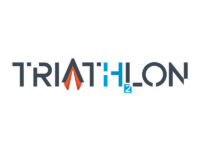
TRIATHLON
Thermodynamics-driven control management of hydrogen powered and electrified propulsion for aviation
In order to mitigate the negative impact of human activity on the environment, significant efforts to lower carbon emissions are being pursued at both the global and European levels. Globally, the aviation industry aims for a 50% reduction of its carbon emissions by 2050, relative to 2005. In this transition towards net zero carbon emissions, novel powertrain technologies exploiting fuel cells and/or combustion systems that rely on hydrogen will play a significant role.
TRIATHLON will use the synergy between powertrain components to overcome the challenges associated with scaling up hydrogen powertrain technology to MW class. The ambition of TRIATHLON is the development of disruptive approaches to design more robust, low-maintenance, low-emmision, highly responsive hydrogen-electric powertrains for megawatt class aircraft. When the disruptive technologies developed by TRIATHLON are adopted by the industry beyond TRIATHLON, it will lead to:
1) Reduction of emissions by implementation of NOx reduction strategies like injection of exhaust water of the FC into the CC and by capturing vented and permeated hydrogen and recompressing it.
2) Elimination of the need for a cryogenic pump by using a high-pressure storage buffer for pressurisation of the fuel distribution system (making the fuel distribution more robust for turbulence as well).
3) Reduction of the power required for hydrogen conditioning using excess heat from FC and CC by means of 3D printed heat exchangers using innovative materials like ceramics, and smart thermal management.
4) Improvement of the gravimetric index of the entire powertrain by providing an effective heatsink to powertrain components, reducing the need for coolant, allowing design of a more compact and lightweight CC, as well as the need for insulation of the hydrogen storage whilst enabling a longer dormancy time.
Within the project AMIRES is responsible for communication and dissemination activities.
- Partners:
- STICHTING MATERIALS INNOVATION INSTITUTE (M2I), Netherlands
- TECHNISCHE UNIVERSITEIT DELFT, Netherlands
- TECHNISCHE UNIVERSITAET DRESDEN, Germany
- ERGON RESEARCH SRL, Italy
- SABANCI UNIVERSITESI, Turkey
- CRYOMOTIVE GMBH, Germany
- LITHOZ GMBH, Austria
- AMIRES S.R.O., Czech Republic
This project has received funding from the European Union’s Horizon Europe research and innovation programme under grant agreement No 101138960.